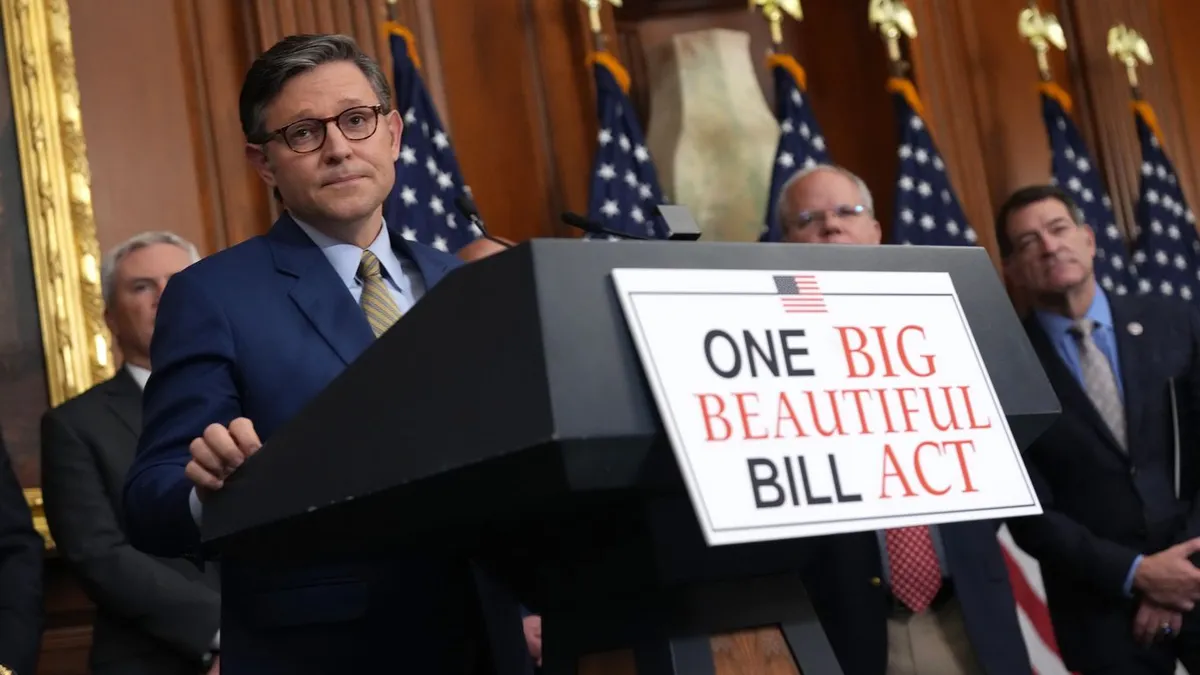
This is not normal, remarked Harris Eppsteiner, the associate director of economic analysis at the Yale Budget Lab. The rapid pace of legislating currently observed is unlike anything seen before and does not reflect the careful, well-thought-out policies typically designed to grow the economy, assist individuals in saving, and encourage investment. Ignacio González, co-director of the Institute for Macroeconomic and Policy Analysis at American University, echoed this sentiment, stating, "I have never seen something like this, to be honest." With the big, beautiful bill on its way to the House, economic and policy experts are urging the public to pay attention to the potential impacts of this legislation.
One significant aspect of the new bill pertains to the taxation of gambling. Under the proposed legislation, the amount that gamblers can deduct from their winnings will be capped at 90% of their losses for a given tax year. Garrett Watson, director of policy analysis at the Tax Foundation, noted that this rule is set to be permanent and will take effect in 2026. For example, a hypothetical gambler who wins $100,000 but loses the same amount would only be taxed on $10,000 of income.
Watson pointed out that even breaking even would still result in a tax liability under this proposal. There are potential scenarios where individuals could face a tax liability that equals or even exceeds their earnings. Pro poker player Phil Galfond expressed his concerns on X, stating that this amendment could spell the end for professional gambling in the U.S. and adversely affect casual gamblers.
Another important change involves charitable giving. Currently, taxpayers who itemize their deductions can receive tax deductions for their charitable donations. The new bill, however, allows those taking the standard deduction to deduct up to $1,000 for single filers and $2,000 for joint filers. While most Americans do not itemize their tax deductions, this new provision provides an opportunity for many to benefit from their charitable contributions. As Watson explained, many people make charitable donations throughout the year, and this adjustment could help reduce their taxable income and overall tax liability.
The current version of the bill includes an auto loan interest deduction, which has provisions set to expire in 2028. According to Watson, some taxpayers could deduct up to $10,000 of annual interest on new auto loans. However, it’s important to note that loans for used cars would not qualify under this Senate version. Furthermore, the deduction applies exclusively to new vehicles assembled in the United States.
Jonathan Smoke, chief economist at market research firm Cox Automotive, provided a reality check on the benefits of this deduction. He noted that a new loan would only yield approximately $500 in savings, while the average interest payment on a car loan is closer to $3,000 per year. As the interest decreases over time, the actual benefit of taking the credit may not even equate to a single monthly payment.
The bill also phases out tax credits for solar and wind projects, which may lead to higher electricity bills for consumers. This change comes at a time when electricity demand is increasing, particularly due to the needs of artificial intelligence and data centers. Natasha Sarin, president and co-founder of the Budget Lab at Yale, stated that consumers will likely face rising electricity rates as a result. Energy economists have warned that prices are expected to increase, although some Republicans argue that as more generation is added, prices will eventually stabilize and drop.
Funding for the Consumer Financial Protection Bureau (CFPB) has been slashed by about half in the new bill, which poses a significant threat to consumer protections. The CFPB has already been struggling due to layoffs and legal challenges. This funding cut could result in hundreds of job losses and severely weaken an agency that has returned billions to American consumers over the past decade. Chuck Bell, advocacy program director at Consumer Reports, stated that consumers will be more vulnerable to predatory financial practices, hidden fees, and scams as a consequence of this devastating budget cut.
As the big, beautiful bill progresses, it is crucial for taxpayers and consumers to stay informed about these changes and their potential impacts on various aspects of everyday life, from gambling to charitable giving and consumer protections.